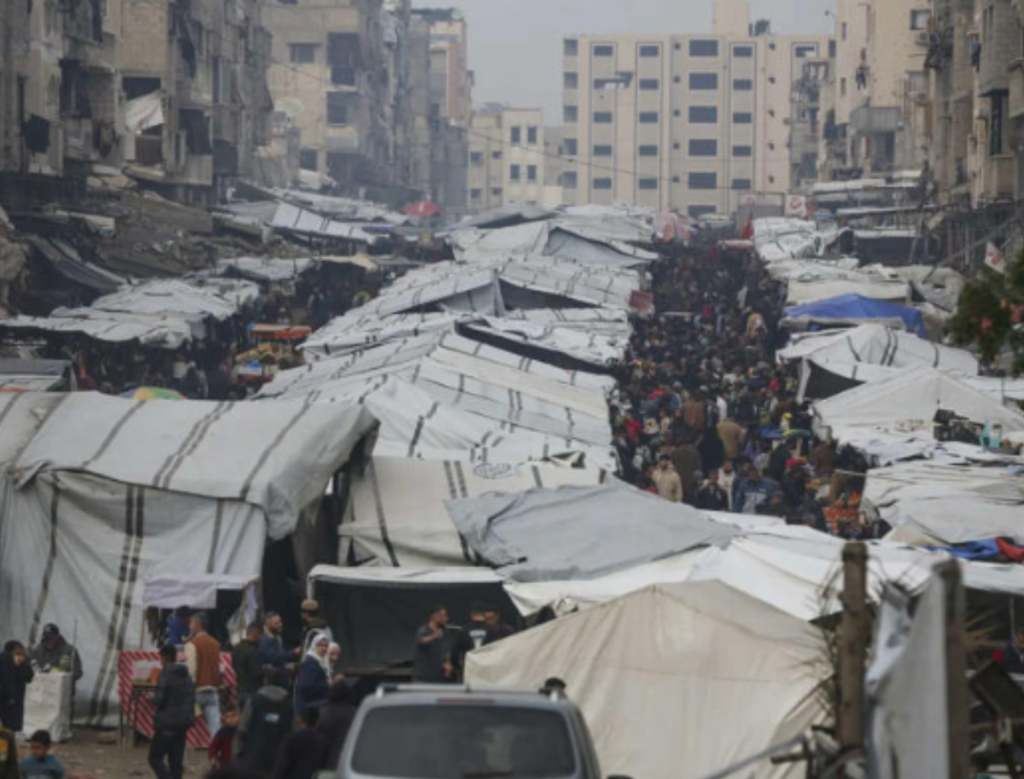
A recent report has raised concerns about a controversial plan allegedly backed by the United States and Israel to displace Palestinians from Gaza and resettle them in East Africa. This proposal has drawn international criticism, with many calling it a violation of human rights and international law. The plan, if true, could have significant implications for the Middle East and East Africa, as well as for global geopolitics.
The Gaza Strip and the Israeli-Palestinian Conflict
The Gaza Strip, home to over two million Palestinians, has been a focal point of the Israeli-Palestinian conflict for decades. The area faces ongoing challenges, including blockades, poverty, and intermittent conflict. For years, efforts to resolve the conflict have failed to produce a sustainable solution, leading to widespread frustration and despair among Palestinians.
The alleged proposal to relocate Palestinians from Gaza to East Africa represents a drastic shift in approach—one that many critics say prioritizes geopolitical convenience over the rights and dignity of the Palestinian people.
Historical Parallels: Forced Displacement and Resettlement Plans
Observers have drawn parallels between this alleged plan and historical forced resettlement schemes, such as the Nazi-era “Madagascar Plan.” That proposal aimed to forcibly relocate European Jews to Madagascar as part of a broader agenda of persecution. While the plan was never implemented, it remains a stark reminder of the dangers of using forced displacement as a policy tool.
Similarly, relocating Palestinians to East Africa raises ethical and legal questions about sovereignty, self-determination, and the long-term impact on host nations.
Alleged Details of the Proposal
According to reports, the plan involves offering financial incentives and diplomatic pressure to encourage Palestinians to leave Gaza voluntarily. East African nations have been named as potential destinations for resettlement, though no specific countries have confirmed participation.
Proponents argue that relocating Palestinians could ease tensions in the Middle East by reducing the population density in Gaza and providing new opportunities for displaced individuals. Critics, however, see the plan as a veiled attempt to undermine Palestinian claims to their homeland while shifting the burden to East Africa.
Implications for East Africa
East Africa, a region already grappling with challenges such as poverty, climate change, and political instability, could face significant strain if asked to accommodate large numbers of displaced Palestinians. Host countries may struggle to provide adequate resources, infrastructure, and support for new arrivals, potentially exacerbating existing socio-economic issues.
Experts warn that the influx of displaced populations could lead to tensions between local communities and newcomers, as well as increased pressure on public services and natural resources.
“East African nations are not prepared for a resettlement initiative of this magnitude,” said Dr. Amina Odinga, a political analyst based in Nairobi. “Such a move could destabilize the region and create new conflicts.”
International Reaction
The proposal has sparked widespread condemnation from human rights organizations, activists, and political leaders. Many have labeled the plan a violation of international law, citing the Fourth Geneva Convention’s prohibition on the forcible transfer of populations.
“This is not a solution; it is an affront to the rights and dignity of the Palestinian people,” said a spokesperson for Amnesty International. “The international community must reject any proposal that involves forced displacement.”
The United Nations has also weighed in, emphasizing the need for solutions that respect the principles of self-determination and human rights.
Palestinian Voices
For Palestinians, the alleged plan represents another chapter in a long history of displacement and dispossession. Many have expressed fears that relocation to East Africa would sever their cultural, historical, and religious ties to their homeland.
“Our identity is rooted in this land,” said Fatima Abu Hassan, a resident of Gaza. “No amount of money or promises can replace the connection we have to our home.”
Legal and Ethical Concerns
Legal experts argue that the plan, if implemented, would violate multiple international laws and treaties. The Fourth Geneva Convention explicitly prohibits the forcible transfer of populations, and the United Nations’ Guiding Principles on Internal Displacement stress the importance of voluntary, informed, and dignified resettlement processes.
“This proposal undermines the very principles of international law and sets a dangerous precedent,” said Professor Elena Rodriguez, an expert in international relations. “It represents a failure to address the root causes of the Israeli-Palestinian conflict.”
The Role of East African Nations
While no East African country has publicly confirmed its involvement, the proposal has raised concerns about how such a plan could impact the region. Leaders and policymakers in East Africa face a difficult decision: whether to reject the plan outright or engage with it under the promise of financial incentives.
Critics warn that accepting displaced Palestinians could strain diplomatic relations within the African Union and with other international partners. Additionally, the perception of East Africa as a “dumping ground” for displaced populations could harm the region’s reputation.
Calls for Sustainable Solutions
As the controversy continues to unfold, there are increasing calls for sustainable and just solutions to the Israeli-Palestinian conflict. Analysts emphasize the importance of addressing the root causes of the conflict, such as inequality, lack of political representation, and ongoing violence.
“Relocation is not a solution; it is a Band-Aid on a wound that requires comprehensive treatment,” said Dr. Ali Mansour, a Middle East policy expert. “The international community must prioritize dialogue, economic development, and equal rights for all parties involved.”
Conclusion
The alleged plan to relocate Palestinians from Gaza to East Africa has sparked global outrage and raised critical questions about the ethics and practicality of such proposals. For many, it represents a step backward in the pursuit of justice and peace in the region.
As history has shown, forced displacement schemes rarely succeed in resolving conflicts and often lead to long-term instability and suffering. The international community must reject policies that violate human rights and instead work towards solutions that uphold the dignity and sovereignty of all peoples.

